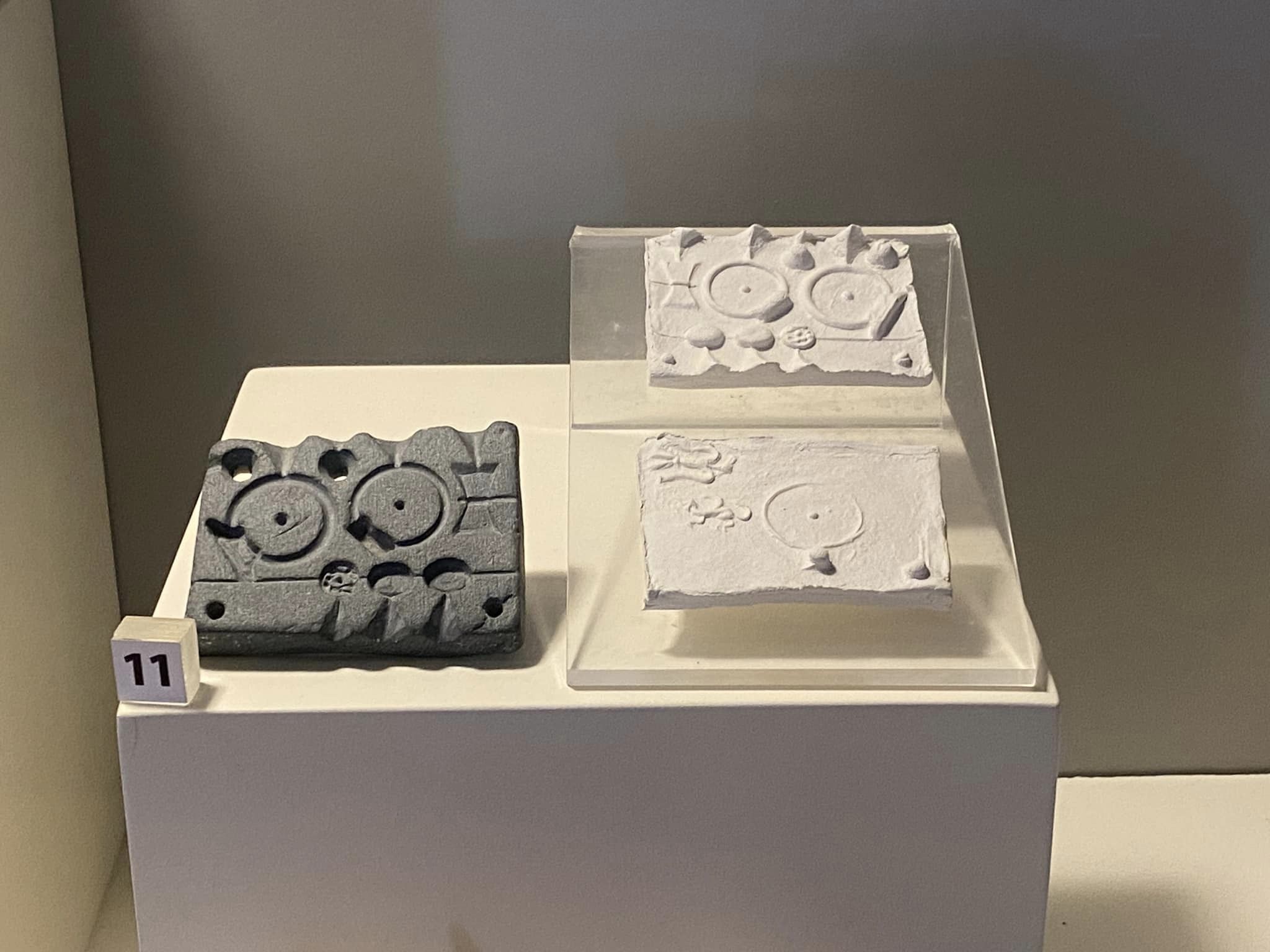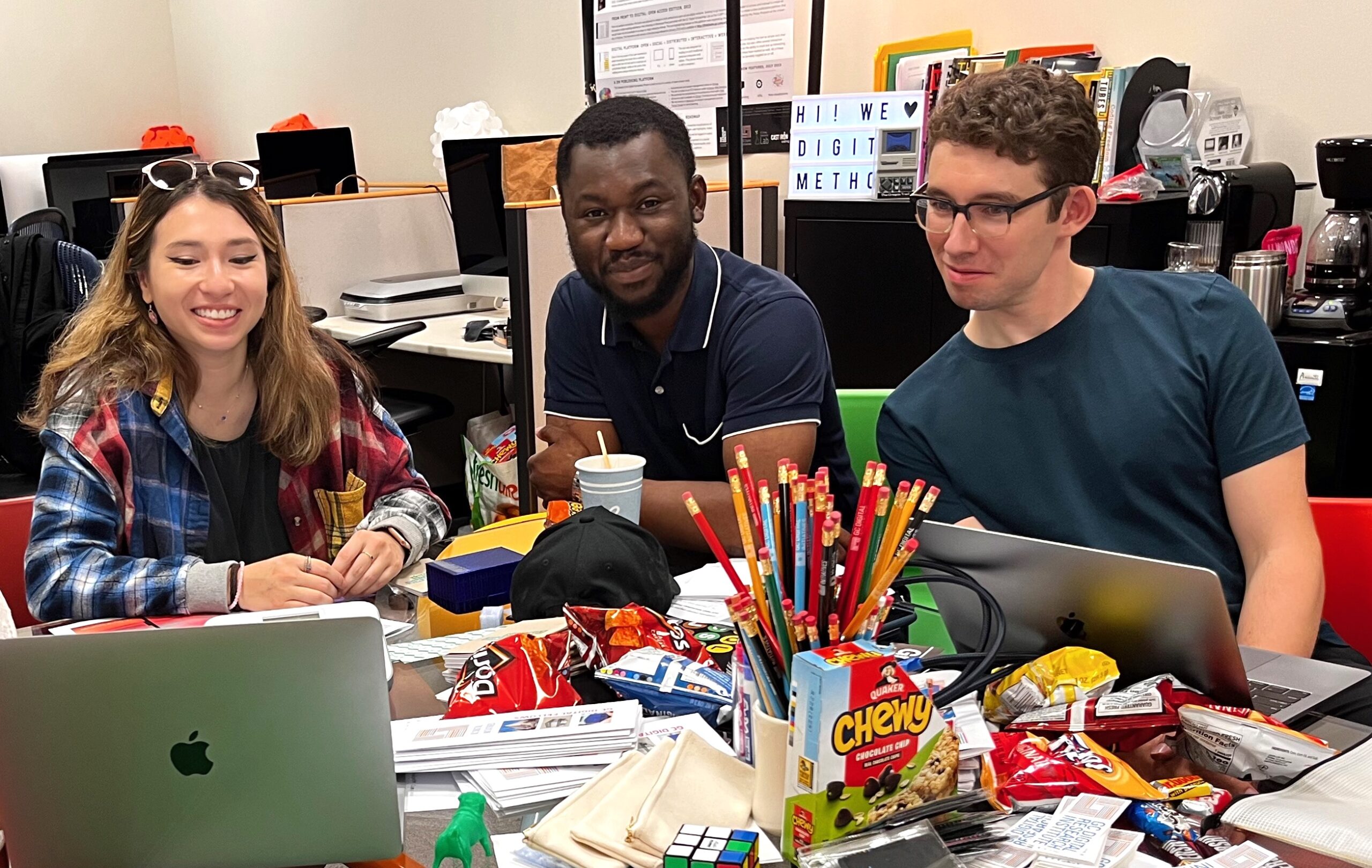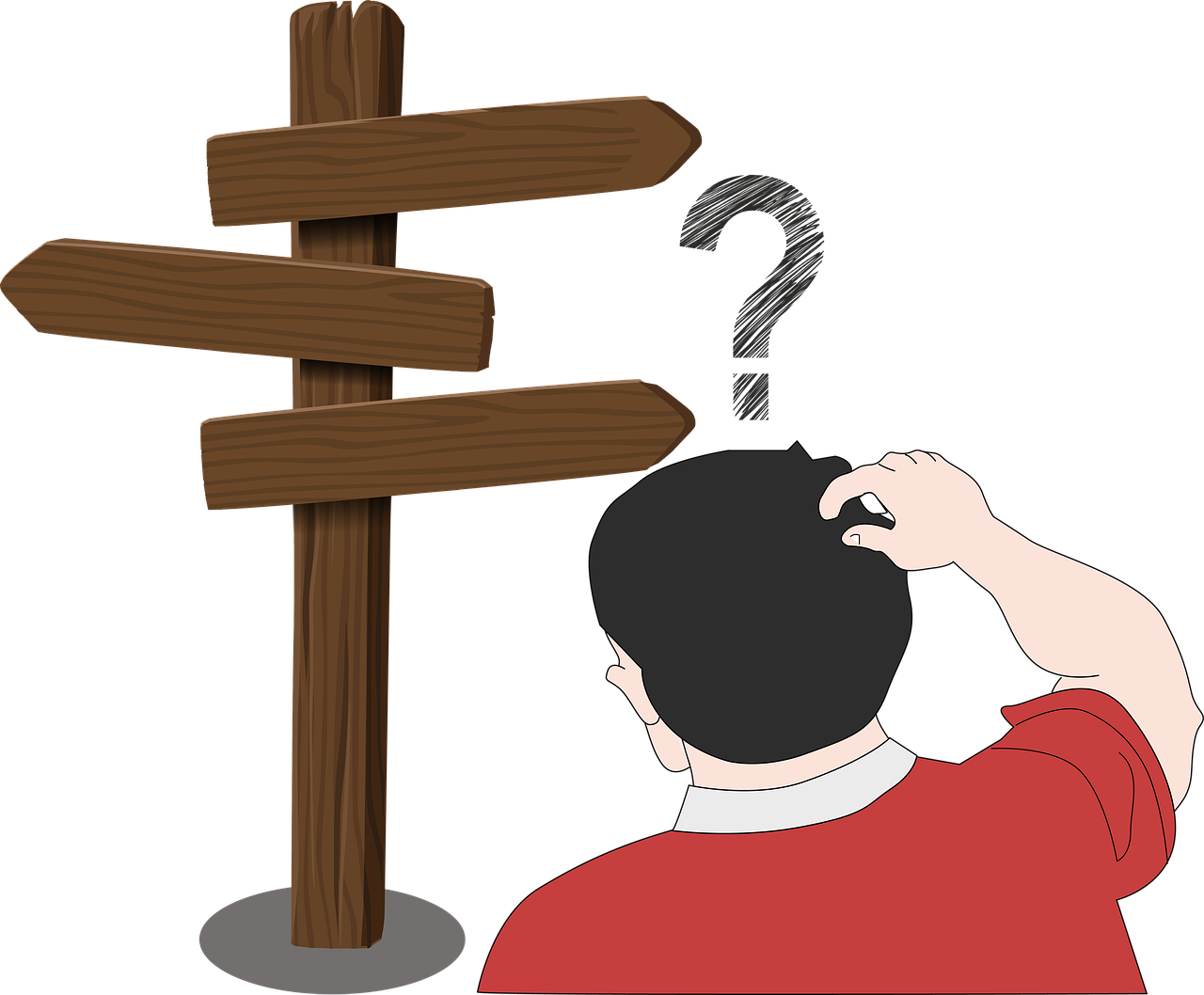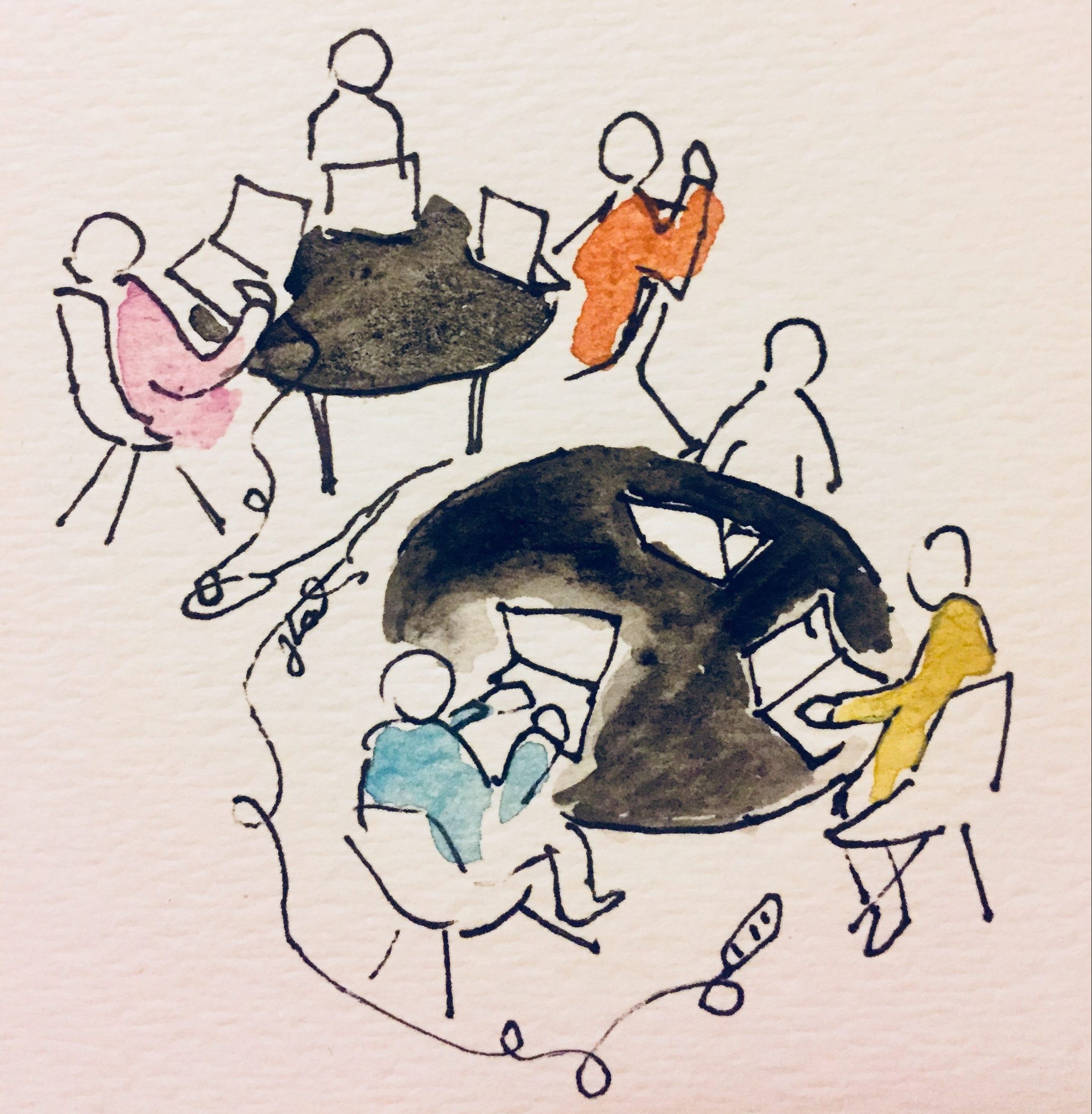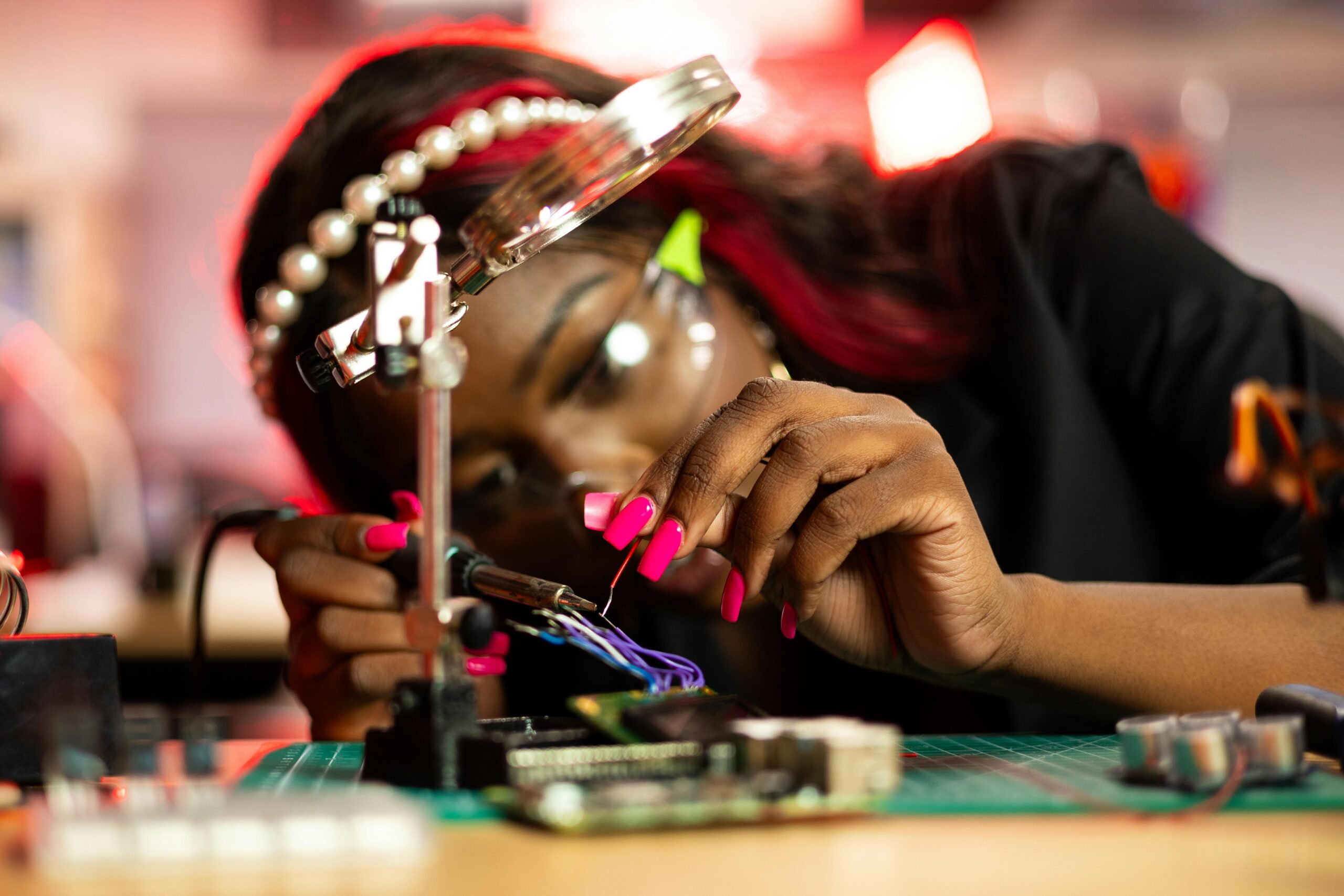
March is Women’s History Month and I want to bring that to the digital fellows’ blog. First, I want to say that when I mention women, I am including cis and trans women (I wish soon this would be too obvious to have to clarify it!). In line with this month, I want to share some resources and ideas for women’s justice in our digital scholarship. Some of the ideas come from my personal digital experiences.
1- Read Data Feminism. This book, written by Catherine D’Ignazio and Lauren F. Klein, is available online and open to everyone. It is an excellent resource to learn about feminist intersectional principles and approach(s) to investigate data, power, and women and gender issues in tech.
2- Learn about the history of women in tech. Data Feminism is also a great place to start learning about women in tech history. However, there are many other resources to learn about women (and please with an intersectional perspective!) in the history of computers, programming, and digital issues in general! For example, a nice start can also be The Forgotten Female Programmers Who Created Modern Tech and When Women Stopped Coding.
3- Participate in digital communities on women’s issues. Many communities in diverse fields work to reduce gender gaps on the internet. For example, you can participate with a mapping community around Open Street Map. This March, I collaborated with Geochicas to map Women’s manifestations on March 8th, International Women’s Day, across the globe. The map is available here.

Another example of this kind of community of practice is Indiciplinadxs, a digital community of feminist linguists from the Americas (but open to people from around the globe) that I have co-led since 2020. In March, we commemorated with a session to talk about the activities we have participated in to commemorate this month and a collective writing asynchronous exercise regarding women and gender issues in the present moment.

4 – Participate in events to change digital bias. One example of these events is the feminist edit-a-thons to change the gender gap on Wikipedia. For example, this March Wikipedia has been developing the initiative Celebrate Women. According to this campaign: “Wikipedia hosts more than 1.9 million biographies. Less than 20% of those are about women and non-binary people. Citations, pictures and perspectives of women and non-binary people have similar gaps on Wikipedia.” So Wikipedians who join the initiative collaborate in different ways to reduce the gender gap in the encyclopedia.
Now, March is not the only time of the year you can collaborate to reduce the gap. Different organizations organize events all year, such as Art+Feminism. You can even get in touch with Wikipedia to organize your editing activities either as part of your teaching or as a part of a group or community.
5- Read research about technology produced by women scholars! If you teach, consider your selection of readings and include both men, women, and non-binary scholars. Additionally, help your students learn about the different identities included in your literature so that they can start deconstructing their ideas on authorship and knowledge production about gender issues.
Finally, I think important questions to continue thinking about this topic are:
- How can you relate the digital topics you work on with more sustained activities for gender equality that exist around you?
- What women and gender communities of practice can you contribute to, amplifying both what you do and what they do?
- What activities can you do to support women in the digital field beyond your publications or specific academic projects?

